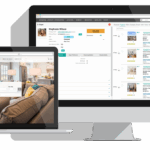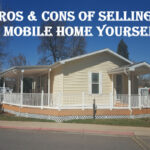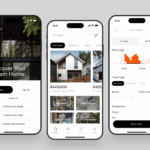Software for selling used mobile homes online is revolutionizing the way transactions occur in this niche market. As the demand for affordable housing options continues to rise, the online marketplace for mobile homes is witnessing unprecedented growth, making it essential for sellers to adopt specialized software that streamlines the process. This innovative technology not only caters to a growing target audience but also enhances the overall selling experience.
With the increasing complexity of online sales, it’s imperative to understand the key features and benefits that effective software can offer. From user-friendly interfaces to integrated marketing strategies, this software serves as a vital tool in reaching potential buyers efficiently. As we delve deeper, we will uncover the essential elements that make software indispensable for successfully selling used mobile homes online.
Introduction to Software for Selling Used Mobile Homes Online
The digital age has transformed how we buy and sell just about everything, and mobile homes are no exception. Specialized software designed for selling used mobile homes online is crucial for streamlining the sales process, enhancing visibility, and connecting sellers with potential buyers across the globe. With a user-friendly interface, it allows sellers to showcase their properties effectively while providing buyers with the tools they need to make informed purchasing decisions.The online marketplace for mobile homes has seen significant growth over the past few years.
With the increasing popularity of mobile living and the affordability of used homes, more individuals are turning to the internet for their housing needs. As a result, businesses and individuals alike are recognizing the value of utilizing specialized software to adapt to this booming digital landscape. Not only does this software facilitate transactions, but it also helps in managing listings, tracking inquiries, and providing insights into market trends.
Target Audience for Mobile Home Selling Software
Understanding the target audience for software aimed at selling used mobile homes is key to its success. The following groups can benefit significantly from this specialized software:
- Sellers: Individual homeowners or brokers looking to sell their used mobile homes efficiently and effectively.
- Buyers: Individuals or families searching for affordable housing options in the mobile home market, often seeking transparency and convenience during the purchasing process.
- Dealers: Mobile home dealerships that require a robust platform to manage multiple listings, customer interactions, and sales data.
- Investors: Real estate investors who focus on mobile homes as a viable investment option, needing tools for market analysis and property management.
- Property Managers: Professionals managing mobile home parks requiring software for tenant placement, lease management, and maintenance tracking.
With a tailored approach to these diverse audience segments, the software not only enhances user experience but also drives engagement and sales effectiveness.
“The future of mobile home sales lies in embracing technology to connect buyers and sellers seamlessly.”
Key Features of Effective Software
When diving into the world of selling used mobile homes online, the right software can make all the difference. Effective software solutions are designed to streamline the process, enhance user experience, and maximize sales potential. This section highlights the essential features you should look for when selecting mobile home selling software.One of the most crucial aspects of effective software is its ability to provide users with intuitive tools that simplify the selling process.
The best platforms offer a range of functionalities that cater to both sellers and buyers, making transactions smooth and efficient. Here are some key features you should consider:
Essential Features for Mobile Home Selling Software
As you explore various software options, it’s important to identify features that not only enhance functionality but also improve user experience. Here’s a breakdown of essential software features that cater to your needs:
- Easy Listing Management: A user-friendly interface that allows sellers to create, edit, and manage listings effortlessly is vital. Effective software should enable bulk uploads and simple editing options.
- Integrated Payment Solutions: Look for software that offers secure payment processing options, allowing buyers to complete transactions without hassle.
- Optimization Tools: Software that includes built-in features helps improve the visibility of your listings on search engines, attracting more potential buyers.
- Mobile Compatibility: With more users accessing platforms via mobile devices, ensure the software is optimized for mobile use, providing a seamless experience on smartphones and tablets.
- Analytics and Reporting: Comprehensive reporting tools that track sales performance, user engagement, and listing views can help sellers identify trends and improve their strategies.
- Customer Support: Responsive customer service is essential. Software that provides reliable support ensures users can resolve issues quickly and efficiently.
Comparison of Software Options, Software for selling used mobile homes online
When evaluating software for selling used mobile homes, comparing different options can help identify the best fit for your needs. Here’s a snapshot of popular software solutions currently available in the market:
| Software Name | Key Features | Pricing |
|---|---|---|
| HomeSnap | Easy listing management, integrated payments, tools | Starting at $29/month |
| MobileHomeSeller | Mobile compatibility, analytics, customer support | Free for basic features, $99 for advanced |
| SellMyMobileHome | Bulk upload options, security features, reporting tools | $49/month |
User-Friendly Functionalities
The right software should elevate the selling experience through intuitive functionalities. Below are some additional features that can greatly enhance the process:
- Customizable Templates: Easily create attractive listings that resonate with potential buyers.
- Virtual Tours: Allow buyers to explore homes via virtual tours, providing an immersive experience.
- Lead Management: Tools that help track and manage potential buyers are essential for effective follow-up.
- Social Media Integration: Software that allows for easy sharing of listings on social media platforms can expand your reach.
- Review System: Including reviews and ratings for homes can build trust and attract more buyers.
Choosing the right software for selling used mobile homes is not just about features; it’s about creating an enjoyable experience for both seller and buyer.
Benefits of Using Software for Mobile Home Sales
Selling used mobile homes can be a complex maze of negotiations, paperwork, and listings. However, leveraging specialized software can simplify this process significantly. By incorporating technology into the sales strategy, sellers can not only enhance efficiency but also attract more buyers while maximizing their profits. This software is designed specifically to tackle the unique challenges of the mobile home market, making it an essential tool for sellers.The integration of software in the mobile home selling process brings a plethora of advantages.
From automating mundane tasks to providing valuable insights, these tools help streamline operations, allowing sellers to focus on what truly matters—closing deals. Through the use of analytics and customer relationship management (CRM) features, sellers can better understand their market and improve their outreach strategies.
Streamlining the Selling Process
Implementing the right software can transform the selling journey into a smooth ride. Here are some ways it accomplishes this:
Automated Listings
Sellers can effortlessly create and manage listings across multiple platforms. This eliminates the tedious task of posting each listing manually and ensures broader visibility.
Enhanced Communication
Built-in messaging features allow for instant communication with potential buyers, reducing response time and facilitating faster negotiations.
Document Management
The software often includes tools for managing contracts and paperwork digitally, ensuring that all documents are organized and easily accessible.
“Efficiency is doing things right; effectiveness is doing the right things.”
Statistics reveal the impact of using software in the mobile home sales arena. A case study from a leading online marketplace showed that sellers who used their platform’s integrated software saw a 30% increase in leads within the first three months. Moreover, the average time to close a sale dropped from 45 days to just 25 days, showcasing a significant improvement in efficiency.
Financial Benefits of Software
When it comes to finances, utilizing software for mobile home sales can lead to substantial economic gains. Here’s how:
Cost Reduction
By automating various tasks, sellers can reduce the need for additional staff or services, trimming operational costs significantly.
Maximized Visibility
With advanced marketing tools, the software helps optimize listings for search engines, increasing the chances of sales and thus influencing profitability positively.
Data-Driven Decisions
Analytics tools provide insights into market trends and buyer behavior, enabling sellers to adjust their pricing strategies and maximize revenue.In a survey conducted among users of mobile home sales software, 67% reported an increase in their profit margins after switching to a technology-driven approach. This clearly illustrates that embracing software not only streamlines operations but also enhances the bottom line.By relying on technology in the mobile home sales process, sellers can not only make their lives easier but also open the door to new financial opportunities.
The combination of efficiency, cost-effectiveness, and data-driven insights delivers a winning formula for success in this niche market.
Steps to Choose the Right Software
When it comes to selling used mobile homes online, selecting the right software can make a world of difference. The right platform can streamline your process, enhance your visibility, and ultimately improve your sales. In this section, we’ll break down some essential steps to consider when choosing the best software for your needs.To ensure you pick the software that aligns with your goals, it’s helpful to have a checklist of criteria that can guide your decision-making.
Consider the following points to evaluate your options effectively.
Checklist of Criteria for Selecting Software
Here’s a handy checklist to help you identify the key features and functionalities you need in a software solution for selling used mobile homes:
- User-Friendly Interface: Ensure the software is intuitive and easy to navigate for both you and your customers.
- Mobile Compatibility: With many buyers using mobile devices, the software should be optimized for mobile viewing.
- Inventory Management: Look for tools that help you track and manage your listings efficiently.
- Features: Choose software with built-in capabilities to increase your visibility online and attract more customers.
- Payment Processing: Ensure the software supports secure payment options to facilitate smooth transactions.
- Integration Capabilities: The ability to connect with other tools and platforms can enhance your overall sales strategy.
- Customer Support: Reliable customer service can be invaluable, especially when you encounter issues.
Evaluating Software Reviews and User Testimonials
Reading reviews and testimonials can shed light on the actual experiences of users, giving you insight into the software’s strengths and weaknesses. When evaluating these reviews, pay attention to the following aspects:
- Consistency of Feedback: Look for common themes in the reviews. Consistent praises or complaints can indicate the software’s reliability.
- Use Cases: Check if the reviews include examples of how other users have successfully utilized the software.
- Response to Criticism: A good company often addresses negative feedback openly, reflecting their commitment to improvement.
Comparison Table of Popular Software Solutions
To help you make an informed choice, here’s a comparison of some popular software solutions tailored for selling used mobile homes, focusing on key features and pricing:
| Software Name | Key Features | Pricing |
|---|---|---|
| HomeSales Pro | Inventory management, tools, payment processing | $49/month |
| Mobile Homes Marketplace | User-friendly interface, mobile compatibility, robust customer support | $39/month |
| SellMyMobileHome | Integration capabilities, advanced analytics, marketing tools | $59/month |
Implementation and Setup Process

Getting your software for selling used mobile homes up and running is a crucial step that can determine how smoothly your online sales will operate. Proper implementation ensures that you can leverage all features effectively, making your selling process streamlined and efficient. So, let’s dive into the steps you need to take to set this up.
Steps Required for Software Setup
Setting up your software involves several actionable steps that will help you start selling mobile homes in no time. Here’s how to go about it:
1. Purchase and Licensing
After you’ve chosen the right software, purchase it and ensure you receive a valid license key. This key is essential for activating the software.
2. System Requirements Check
Before installation, make sure your computer or server meets the software’s system requirements. This will prevent any compatibility issues down the line.
3. Download and Installation
Download the software from the official website or your purchase confirmation email. Follow the installation prompts, which generally include accepting terms and conditions and selecting the installation location.
4. Activation
Once installed, open the application and enter your license key to activate the software. This step is crucial to unlock all features.
5. Initial Configuration
Set up your account by entering necessary details such as business information, payment methods, and preferred settings.
6. Data Migration
If you’re transitioning from another system, migrate your existing data to the new software. Ensure data integrity by verifying the information post-migration.
7. User Training
Train your team on how to use the software effectively. Most providers offer tutorials or customer support that can help with this.
8. Go Live
After completing all the above steps and testing the software, you’re ready to start listing and selling mobile homes online.
Common Challenges During Implementation
During the implementation phase, users often encounter common challenges. Understanding these can help you navigate them effectively:
Technical Issues
Installation glitches or bugs may arise. It’s important to have technical support from the software provider readily available to resolve these issues quickly.
Data Loss
There’s a risk of losing important data during migration. Always back up your data before making any changes to prevent potential loss.
User Resistance
Team members might resist using new software. Providing comprehensive training and showcasing the benefits can help ease this transition.
Integration Difficulties
Issues may arise when integrating with existing sales channels. To overcome this, consult the software’s documentation or seek help from customer support for guidance on successful integration.
Integrating Software with Existing Sales Channels
Integrating your software with existing sales channels maximizes your reach and efficiency. Here’s how to ensure a seamless integration:
Identify Existing Platforms
Know which platforms you currently use for sales, such as websites, social media, or marketplaces.
Check Compatibility
Confirm that the software you’ve acquired supports integration with your existing platforms. Most modern software includes APIs for easy connection.
Follow Integration Guides
Most software vendors provide detailed guides on how to connect with various platforms. Follow these step-by-step instructions carefully.
Test the Integration
Once integrated, run tests to ensure data flows correctly between systems. Check for consistency in listings and inventory updates.
Monitor Performance
After integration, continuously monitor the performance of your sales channels to ensure everything operates smoothly.By following these steps and keeping an eye out for potential challenges, your experience with the software will be much more manageable, allowing you to focus on selling those mobile homes!
Marketing Strategies Using Software
In today’s digital age, leveraging software tools for online marketing is a game-changer, especially for selling used mobile homes. With the right software, not only can you streamline your sales process, but you can also reach a broader audience and effectively engage potential buyers. Let’s dive into how software can supercharge your marketing strategies.Using software for marketing mobile homes enables sellers to create targeted campaigns, utilize social media, and optimize their listings for search engines.
The integration of Customer Relationship Management (CRM) systems with marketing tools can help you segment your audience and tailor your messages effectively. For instance, platforms like HubSpot or Mailchimp can automate your email campaigns, ensuring your property listings reach the right people at the right time.
Successful Marketing Campaigns with Software Solutions
Analyzing successful campaigns helps illustrate the effectiveness of software in marketing. For example, a mobile home dealership utilized a combination of social media marketing and CRM software to boost their visibility. By employing Facebook Ads integrated with their CRM, they targeted specific demographics based on interests and location. This approach resulted in a 30% increase in inquiries over a three-month period.
Another notable example is a mobile home sales company that used Google Ads alongside their sales software. They conducted research and optimized their website content for . As a result, organic traffic to their site increased by 50%, leading to higher engagement and sales conversions.
Importance of Tracking and Analyzing Marketing Efforts
Tracking and analyzing your marketing efforts through software is crucial for understanding effectiveness and improving strategies. Software solutions like Google Analytics and social media insights provide valuable data on user engagement, traffic sources, and conversion rates. Utilizing these tools allows sellers to adjust their marketing tactics based on real-time feedback. For example, if a particular ad campaign isn’t performing well, you can quickly pivot and optimize based on insights gathered.
This data-driven approach not only saves time but also maximizes your marketing budget.
“In marketing, what gets measured gets managed.”
By effectively using software tools for marketing, sellers of used mobile homes can gain a competitive edge, ensuring that their properties stand out in a crowded marketplace.
Customer Support and Resources: Software For Selling Used Mobile Homes Online
When diving into the world of software for selling used mobile homes online, having robust customer support and ample resources is key to ensuring a smooth experience. Users should feel confident not just in the software capabilities but also in the support they receive when challenges arise. This section highlights the essential customer support options and valuable resources available to enhance user experience and maximize software efficiency.
Types of Customer Support Offered
Customer support is a crucial component of any software service, especially when you’re navigating the nuances of selling mobile homes online. Here are the essential support types that software providers should offer to ensure users have access to the help they need:
- Email Support: A reliable way to get assistance with non-urgent questions or issues.
- Live Chat: Instant support for immediate inquiries, allowing users to get real-time answers.
- Phone Support: Direct access to support teams for complex issues requiring detailed discussion.
- Online Forums: Community-driven platforms where users can share tips, ask questions, and troubleshoot together.
- Knowledge Base: Comprehensive documentation, FAQs, and troubleshooting guides that allow users to find solutions independently.
Availability of Training Resources and Tutorials
To empower users to utilize the software effectively, a variety of training resources and tutorials should be readily accessible. These resources can significantly reduce the learning curve and foster more confident usage of the platform.
- Video Tutorials: Engaging visual content that guides users through various software features step-by-step.
- User Manuals: Detailed documentation that Artikels every function and feature of the software.
- Webinars: Live sessions where users can learn about the software’s capabilities and ask questions in real-time.
- Interactive Demos: Hands-on sessions that allow users to explore the software in a controlled environment.
Additional Resources for Ongoing Learning and Improvement
To stay ahead in the competitive mobile home market, continuous learning and improvement are essential. Here’s a list of additional resources that can help users enhance their skills and knowledge in using the software effectively:
- Blog Posts: Regularly updated articles covering industry trends, software tips, and best practices.
- Online Courses: Comprehensive courses that delve into advanced features and market strategies.
- Customer Success Stories: Case studies showcasing how other users successfully leveraged the software to boost their sales.
- Networking Opportunities: Events and community meetups that allow users to connect with peers and share insights.
“Empowerment through education leads to success in selling used mobile homes online!”
Trends in Software for Mobile Home Sales
The landscape of mobile home sales is evolving rapidly, influenced by technological advancements and changing buyer behaviors. As the digital marketplace expands, the software solutions designed for selling used mobile homes are also adapting to meet these new demands. Understanding these trends is essential for anyone looking to navigate the mobile home sales industry effectively.Emerging trends and technologies are significantly impacting how software is developed for mobile home sales.
One major trend is the integration of artificial intelligence (AI) and machine learning into sales platforms, allowing for more personalized experiences for buyers. This tech enables predictive analytics, helping sellers understand market trends and buyer preferences, ultimately leading to better sales strategies. Additionally, the rise of mobile-first solutions continues to shape the way potential buyers engage with listings, emphasizing the need for responsive and intuitive mobile applications.
Influence of Social Media and Digital Advertising
Social media platforms are becoming essential tools in the mobile home sales process. Sellers can leverage these platforms not just for advertising, but also for building brand awareness and engaging directly with potential buyers. The visual nature of social media is particularly effective for showcasing mobile homes, allowing sellers to highlight features and amenities through appealing photos and videos. Digital advertising further enhances this reach, providing targeted campaigns that can connect sellers with specific demographics.
Here are some key points showcasing the impact of social media and digital advertising in this sector:
- Targeted Advertising: Platforms like Facebook and Instagram allow for targeted ads based on user behavior, interests, and demographics, increasing the chances of reaching potential buyers.
- User-Generated Content: Encouraging customers to share their experiences and photos of their mobile homes can create authentic marketing content that resonates with potential buyers.
- Engagement Opportunities: Social media facilitates direct communication between sellers and buyers, allowing for quick responses to inquiries and fostering relationships.
- Influencer Partnerships: Collaborating with social media influencers can amplify the reach of listings and add credibility to the selling process.
Predictions for Future Mobile Home Selling Software
Looking ahead, the future of mobile home selling software seems bright, with several anticipated developments likely to shape the industry. Innovations such as augmented reality (AR) and virtual reality (VR) are expected to play significant roles in how buyers experience properties. Imagine potential buyers being able to take virtual tours of mobile homes from their living rooms, making the decision process smoother and more informed.Data analytics is also predicted to become more sophisticated, enabling sellers to refine their strategies based on real-time market insights.
By utilizing big data, mobile home sellers can gain a deeper understanding of buyer behavior and adjust their offerings accordingly. Notably:
Enhanced Data Security
As software solutions become more integrated with personal data, robust security measures will be paramount to protect both sellers and buyers.
E-commerce Integration
Seamless transaction processes will become standard, allowing buyers to complete purchases online directly through the software.
Sustainability Features
With increasing awareness of environmental issues, future software may include features that highlight energy-efficient homes or sustainable living practices.In conclusion, as the mobile home sales landscape continues to shift, embracing these trends will be crucial for sellers who want to stay competitive and meet the needs of modern buyers.
Ending Remarks
In conclusion, the insights gathered on software for selling used mobile homes online Artikel its pivotal role in simplifying the sales process while maximizing profits. By evaluating various software options and understanding their features, sellers can make informed decisions that align with their business goals. Embracing these tools not only enhances the selling experience but also positions sellers for success in a competitive market.




